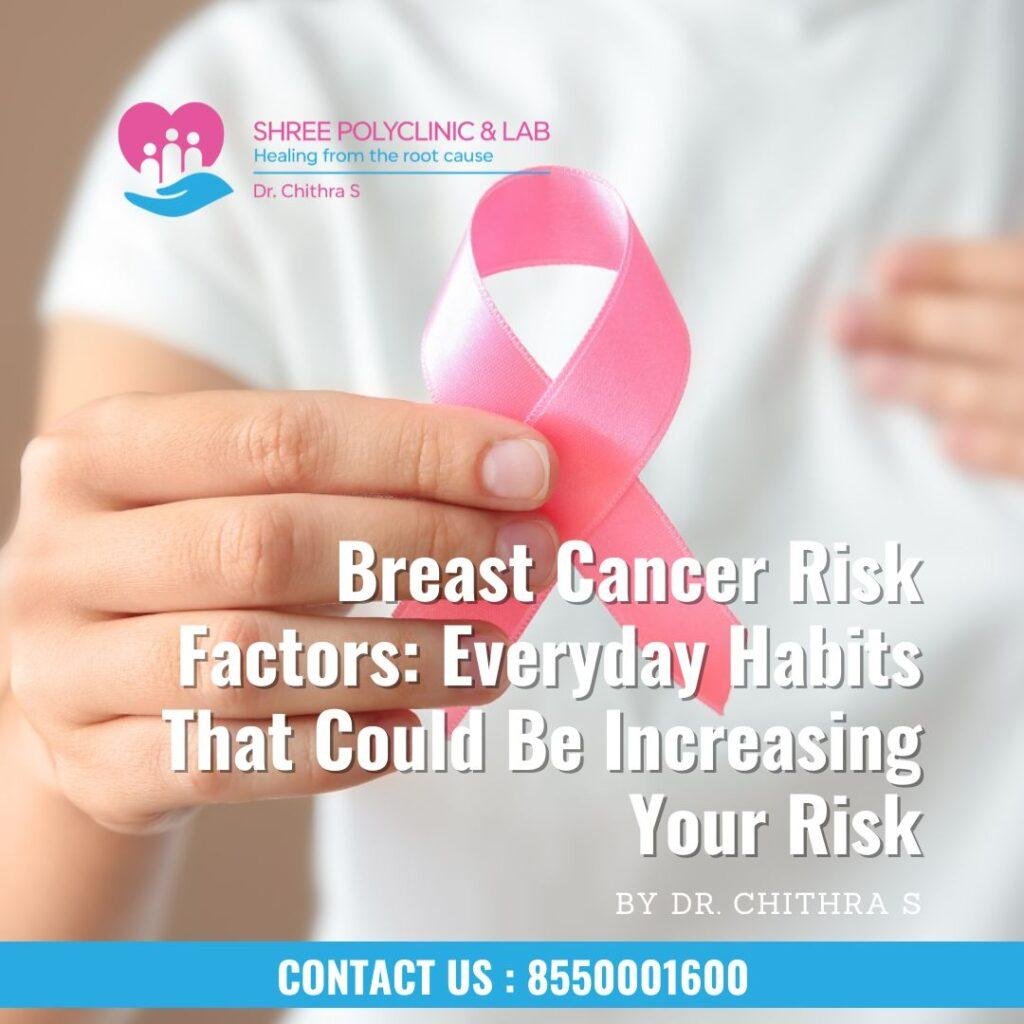Breast cancer is one of the most common cancers affecting women worldwide. While genetics and age play a significant role, everyday lifestyle choices can also silently increase your breast cancer risk. Habits like the foods you eat, exercise frequency, and even sun exposure can influence your chances of developing the disease.
Here are some surprising lifestyle factors that could be increasing your risk of breast cancer and what you can do to lower it.
1. Low Vitamin D Levels
Vitamin D is essential for overall health, and low levels of this vitamin have been linked to a higher risk of breast cancer. Vitamin D helps regulate cell growth and may prevent the spread of cancerous cells. Spend time outdoors, consume vitamin D-rich foods, and consider supplements to maintain healthy levels.
2. Exposure to Light at Night
Frequent exposure to artificial light at night, such as working night shifts, may increase the risk of breast cancer by disrupting melatonin production. Melatonin is a sleep hormone with cancer-protective properties. Reducing light exposure at night and maintaining a regular sleep schedule can help mitigate this risk.
3. Harmful Chemicals in Hair Products and Cosmetics
Some studies have indicated that certain chemicals in hair dyes, straighteners, and cosmetics, like parabens and phthalates, may increase breast cancer risk. Opt for products with fewer chemicals and consider natural alternatives.
4. Chemicals in Food and Lawn Products
Pesticides, antibiotics, and other chemicals in food and lawn care products have been linked to increased cancer risk. Reducing exposure to these chemicals, whether through organic food choices or safer gardening practices, is a wise preventative measure.
5. Plastics and BPA Exposure
Bisphenol A (BPA) is a chemical found in certain plastics that can mimic estrogen in the body, potentially increasing breast cancer risk. Avoid heating plastics or exposing them to sunlight to limit your exposure to harmful chemicals.
6. High-Temperature Cooking Methods
Cooking meats at high temperatures, such as grilling or barbecuing, can produce carcinogenic compounds. Women who frequently consume grilled or smoked meats may face a higher breast cancer risk. Instead, choose healthier cooking methods like baking, steaming, or boiling.
7. Prolonged Hormone Replacement Therapy (HRT)
Long-term use of Hormone Replacement Therapy (HRT), especially combined estrogen-progestin therapy, has been linked to an increased breast cancer risk. The longer you use HRT, the higher your risk, so it’s essential to consult your doctor about safer alternatives.
Conclusion
While some risk factors for breast cancer, such as age and genetics, are beyond your control, making mindful lifestyle changes can significantly lower your risk. By adopting healthier habits and being aware of your daily choices, you can take proactive steps to protect your health.
Book Your Full Body Health Checkup Today to stay ahead of potential risks and ensure your peace of mind.

